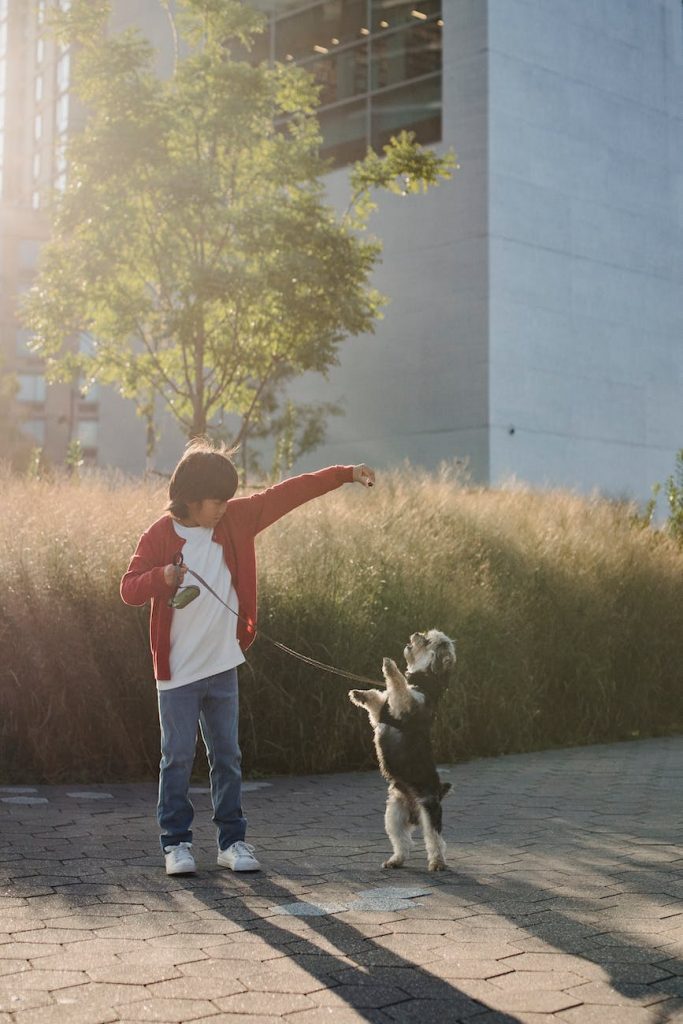Bringing home a Yorkie puppy is an exciting and joyous experience. These adorable bundles of fur require special care and attention to ensure they grow into healthy and happy adult dogs. In this comprehensive guide to Yorkie puppy care, we will cover everything from nutrition to socialization, grooming to training, and more. So, let’s dive in and discover how to provide the best care for your Yorkie puppy.
1. Establish a Safe Environment
Creating a safe and secure environment for your Yorkie puppy is crucial. Before bringing them home, remove any hazardous items or toxic substances from their reach. Yorkies are curious and can get into mischief, so make sure to puppy-proof your home. Consider using baby gates or crate training to limit access to certain areas of your home. Provide a comfortable bed, toys, and a designated space where your puppy can feel safe and secure.
2. Balanced Nutrition
Proper nutrition is vital for the growth and development of your Yorkie puppy. Choose a high-quality puppy food specifically formulated for small breeds. Look for a brand that lists meat as the first ingredient and avoids fillers or artificial additives. Yorkies have a delicate digestive system, so it’s important to feed them a balanced diet that meets their nutritional needs. Feed your puppy small, frequent meals throughout the day to support their fast metabolism. Consult with your veterinarian to determine the appropriate portion sizes and feeding schedule for your puppy’s age and weight.
3. Regular Veterinary Care
Regular veterinary care is essential for the health and well-being of your Yorkie puppy. Schedule routine visits to the veterinarian for check-ups, vaccinations, and preventive care. Your vet will ensure your Yorkie puppy receives necessary vaccinations to protect against common diseases. They will also provide guidance on parasite prevention, dental care, and spaying/neutering options. Regular veterinary care is crucial for monitoring your puppy’s growth, detecting any potential health issues early on, and ensuring they receive proper care and attention.
4. Socialization and Training
Early socialization is key to raising a well-rounded and confident Yorkie. Expose your puppy to various environments, people, and other animals in a controlled and positive manner. This will help them develop good manners, become comfortable in different situations, and reduce the likelihood of fear or aggression. Enroll your Yorkie puppy in puppy socialization classes where they can learn basic obedience commands and interact with other puppies. Positive reinforcement training methods work best for Yorkies, as they respond well to praise and rewards. Patience, consistency, and gentle guidance will help shape your Yorkie into a well-behaved and obedient companion.
5. Exercise and Mental Stimulation
While Yorkies are small in size, they still require regular exercise to keep them physically and mentally stimulated. Daily walks, interactive play sessions, and engaging toys can help burn off their energy and prevent boredom. Yorkies are active dogs, and lack of exercise can lead to behavioral issues or excessive barking. Be mindful not to overexert your puppy, as they have delicate bones and joints. Adjust the intensity and duration of exercise as they grow. Additionally, mental stimulation is equally important. Engage your Yorkie puppy with puzzle toys, interactive games, and training sessions to keep their minds sharp and prevent boredom.
6. Grooming and Coat Care
Yorkies are known for their beautiful, long, and silky coats. Proper grooming is essential to maintain their coat’s health and appearance. Brush your
puppy’s coat daily to prevent mats and tangles. Use a slicker brush or a comb specifically designed for long-haired dogs. Regular brushing not only keeps their coat free of knots but also distributes the natural oils, giving their fur a healthy shine. Additionally, schedule regular professional grooming sessions for trims and maintenance. Pay attention to their dental hygiene as well by brushing their teeth regularly and providing appropriate chew toys to promote dental health.
7. Housetraining and Potty Training
Housetraining your Yorkie puppy requires patience, consistency, and positive reinforcement. Establish a regular routine for bathroom breaks, and take your puppy outside to the designated potty area frequently, especially after meals and naps. Use verbal cues, such as “go potty,” to associate the behavior with a specific command. Reward your puppy with praise, treats, or a designated potty area. Crate training can be a useful tool in potty training, as it helps teach your puppy to hold their bladder and prevents accidents when unsupervised. Be prepared for accidents and understand that they are part of the learning process. Avoid punishment and instead focus on positive reinforcement to encourage good potty habits.
8. Mental and Emotional Well-being
Yorkies are social and affectionate dogs that thrive on human companionship. They can become anxious or develop separation anxiety if left alone for long periods. It’s important to ensure your puppy receives plenty of love, attention, and mental stimulation. Engage in interactive playtime, provide them with puzzle toys that challenge their minds, and spend quality bonding time together. Yorkies love to be part of the family, so include them in daily activities and outings whenever possible. A well-balanced and enriched environment will contribute to their mental and emotional well-being.
9. Health Monitoring and Early Intervention
Monitoring your Yorkie puppy’s health closely is essential for their well-being. Yorkies are generally healthy dogs, but like all breeds, they can be prone to certain health issues. Common health concerns for Yorkies include dental problems, patellar luxation (kneecap dislocation), tracheal collapse, and eye conditions. Regularly check their teeth, ears, eyes, and overall body condition. Be vigilant for any signs of illness or discomfort, such as changes in appetite, lethargy, excessive scratching, or unusual behavior. If you notice anything out of the ordinary, consult your veterinarian promptly for proper diagnosis and treatment. Early intervention can often make a significant difference in the outcome of certain health conditions.
10. Unconditional Love and Patience
Above all, remember to shower your Yorkie puppy with unconditional love, patience, and understanding. Building a strong bond based on trust and affection is essential for a lifelong companionship. Cherish the puppyhood stage as it passes quickly, and embrace the joy and love that your little Yorkie brings into your life. Their unwavering loyalty and devotion will reward you with endless happiness and cherished memories.
Thank you for reading our comprehensive guide to Yorkie puppy care. We hope these tips and insights help you provide the best possible care for your adorable new companion. Remember, each Yorkie is unique, so adapt the guidelines to suit your puppy’s individual needs. Enjoy every moment of this precious journey with your Yorkie puppy, and may your bond grow stronger with each passing day.



Pingback: Yorkie Dental Care: Keeping Your Yorkshire Terrier's Smile Bright
Pingback: Yorkshire Terrier Characteristics: Unveiling the Charms of Yorkies